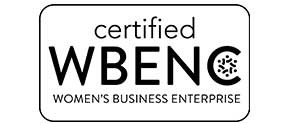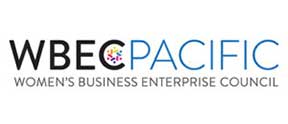BLOG CATEGORIES
SUBSCRIBE
FOR LATEST UPDATES
Sign up for our monthly newsletter with our latest offers,hot blogs and much more !


JOIN US
FOR CALL
Lets chat via skype to discuss your questions concerns, and project needs
TRENDING NOW
The Importance of Corporate Water Efficiency When Creating Sustainability Policies

This article is the first in a series on incorporating water efficiency policies when updating or establishing corporate sustainability goals. Read parts two, three, four and five.
Focusing on sustainability is a must for businesses in today’s environment – economic, social and environmental. The list of reasons corporations are increasingly more focused on sustainability ranges from adding brand value and meeting consumer demands to attracting top talent and increasing efficiency, but the list of how companies can actively become more sustainable is equally expansive. In a world where climate change and global warming is directly contributing to the number of droughts seen in the United States and across the world, there has been a shift among companies to set water efficiency policies.
Are you looking for assistance brainstorming ideas about alternative water resources or interested in creating a water efficiency plan? Please call us at (415) 351-2227. We will be happy to help!
A report by Refinitiv published in 2019 found that the number of companies with emissions reduction policies had gone up 56 percent since five years prior – right before the world had to adjust to a new normal as a result of a global pandemic. The same report saw that during the same timeframe there was a 25 percent rise in water efficiency policies and suggested that water efficiency could be the next big corporate sustainability trend.
As we look to a post-COVID world, with employees returning back to work, companies will once again feel the pressure to focus on sustainability, including water efficiency. This is further reinforced by the World Economic Forum’s 2020 Global Risk Report that puts water crises among the top five greatest risks society will face over the next 10 years.
But how do companies become more water-efficient when revamping their sustainability policies? When creating new water efficiency policies, corporations will need to examine everything from where the water they use to create their products is coming from to how much water is being used to maintain their operations. Furthermore, the UN suggests that it is essential for companies to thoroughly examine their water footprint in order to help prevent a global water crisis.
So, what can you do to make your company more water-efficient?
Corporate sustainability, and therefore water efficiency, is dependent on leadership taking accountability and setting policies that trickle down throughout their business. While seeing results when creating or updating water efficiency policies won’t happen overnight, companies can hit the ground running as their offices begin to open back up by actively doing the following:
- Comparing water issues against company goals and working to develop and regularly review a water conservation plan to ensure water conservation standards are being met. This includes examining water utility bills and ensuring your facilities are properly maintained
- Updating facilities with water-efficient technologies by installing low-flow fixtures in kitchens and bathrooms
- Implementing office protocols that reduce water usage including forgoing single-use plastic water bottles and disposable cups and utensils and replacing these products with reusable options
- Investing in recycled water to help reduce energy output and save money
- Examining partnerships and working with suppliers that also have water efficiency policies
Regardless of where your company is at in becoming more sustainable and reducing your water consumption, it is essential to begin examining how you can become more efficient and putting policies in place. Doing so will not only help the environment but will also help attract customers and valuable talent.
Check out the following resources for ideas on how to start establishing water efficiency policies at your company:
- EPA Lean & Water Toolkit
- S. Department of Energy Water Evaluation Tools
- Alliance for Water Efficiency Resources and Tools
Read part two.
You can get the latest blogs, podcast episodes and other news straight in your inbox. Please fill out the form below to subscribe to our newsletter.
see more...

How to Establish a Corporat...
This article is the second in a series on incorporating water efficiency polic...
LEARN MORE
Updating Facilities with Wa...
This article is the third in a series on incorporating water efficiency polici...
LEARN MORE








